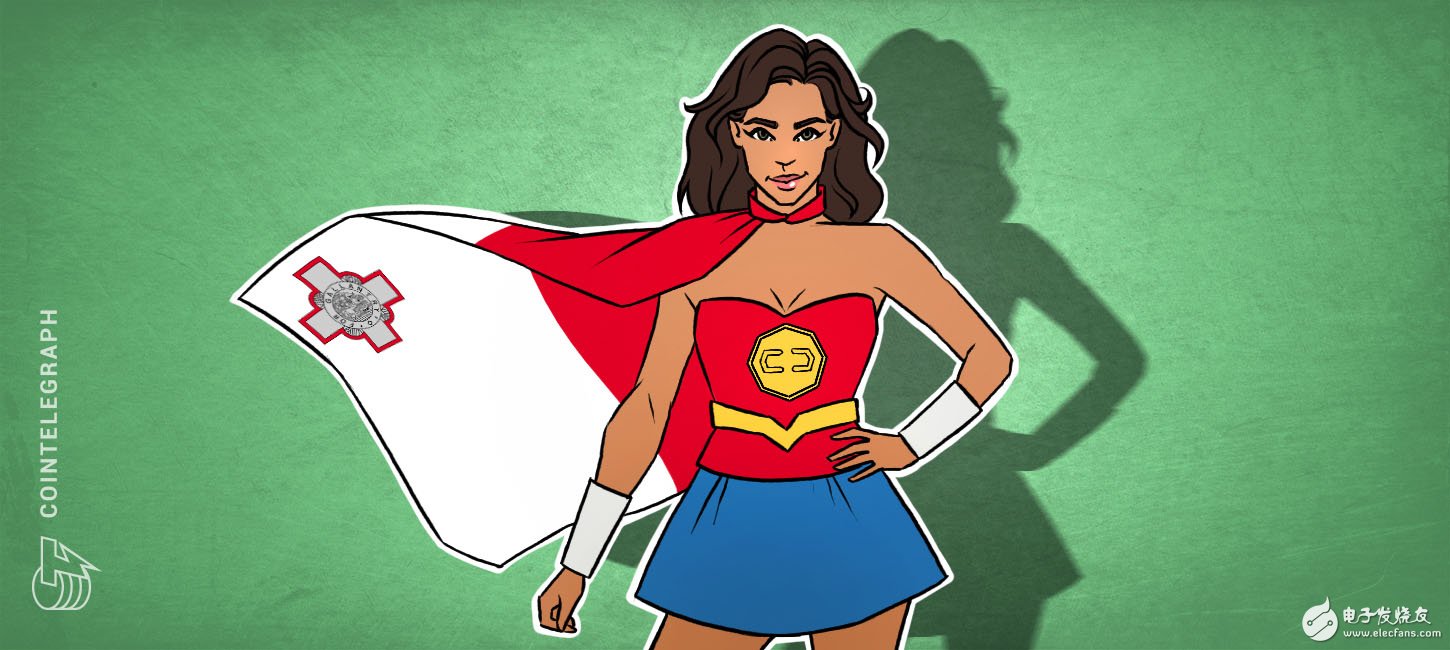The prosperity of Bitcoin is more than just a digital currency revolution. Companies around the world are exploring the application potential of blockchain technology in a range of different fields, including automobiles, mobile phones, and a variety of disruptive alternative products in the banking, government, and shipping industries. In addition, not only small startups, but also large companies like Amazon, Alibaba, and Microsoft are working hard to promote blockchain innovation. However, considering that the current blockchain regulatory frameworks in different countries are developing at different speeds, these companies are still constantly negotiating to try to enter a regulatory framework that can be continuously expanded. Many different types of companies have emerged in the cryptocurrency ecosystem. These companies usually enter the crypto industry by participating in an ICO project to raise capital. This poses a problem for regulators, that is, how to control this decentralized, crowdfunding form of financing. From the cautious and skeptical US Securities and Exchange Commission (SEC) to the Chinese government which severely cracked down on initial coin offerings (ICOs), to Malta and Switzerland, which compete with each other to become the first choice for financial technology and blockchain, different countries There are different views on how to regulate, or ban or support blockchain startups. Therefore, due to the global nature of blockchain products, starting a blockchain project does not have to worry about what regional customers look like, but must carefully study local laws and regulations, the atmosphere of the community, the specific strategies and methods of project development, and other reasons. Various factors exist in different countries in order to successfully start the project and achieve its target results, which is very important. The different approaches taken by various governments and regulatory agencies on blockchain have led to some countries and regions that are friendly to blockchain technology and are sometimes referred to as "encrypted currency safe havens." These countries or regions are committed to attracting financial technology companies and blockchain projects to settle down, hoping to use a potential financial revolution to promote their own public agenda. Many of these tax havens are in relatively small countries. Countries like Switzerland, Malta, and Bermuda are actively adjusting and enacting laws to welcome blockchain projects. On the other hand, some countries have been opposed to blockchain, constantly blocking and even scaring off as many blockchain projects as possible, and in many cases have achieved their desired effects. Although some people in the blockchain industry are often dissatisfied with government supervision, supervision is a necessary condition for the long-term development of blockchain technology. Some companies were established in a completely free market environment without relevant rules, but the situation has changed, and now the legislature will catch up. Other companies hope that the blockchain industry can be supervised by the government so that there are laws to follow after the establishment of the company. Switzerland is one of the first countries to establish a regulatory framework for blockchain and cryptocurrency projects, with a friendly attitude. Switzerland-the cryptocurrency valley The United States has Silicon Valley, and Switzerland hopes to establish its own 2.0 version of the technology industry cluster in the town of Zug, the Cryptocurrency Valley. And before Zug turned his full attention to cryptocurrency, Switzerland has been committed to becoming a sandbox for financial technology. In July last year, Switzerland provided put options to companies that had accumulated approximately $1 million in third-party funds to test their innovative financial technology concepts without being restricted by conventional financial and digital currency supervision. They also stated that the bank license will be re-evaluated so that companies with less than $1 million in income can obtain digital currency deposits and eligibility to withdraw crowdfunding funds within the 60-day validity period, greatly extending the previously stipulated "7-day" validity period . Since Switzerland began to support the development of financial technology companies and blockchain technology, a large number of such innovative projects have emerged. Stephen Meyer, a legal expert and a PhD student in blockchain law, lives in Zurich, Switzerland. He analyzed for us the advantages and disadvantages of starting a blockchain project in this small European country: Based on the guidance issued by the Swiss Monetary Authority FINMA in February 2018, the current blockchain and cryptocurrency regulatory situation in Switzerland is very clear. In addition, it is very important that companies can apply for FINMA to conduct pre-assessment of individual company projects. Each encryption team can describe their project, send it to FINMA, and usually receive a clear statement within 4-8 weeks of compliance with regulatory requirements. "Switzerland has not established new legislation related to blockchain, because like all new laws and regulations, this will create uncertainty about the specific application scope of laws and regulations. Switzerland, on the contrary, continues to use the existing regulatory framework, but adopts a flexible, principle-based approach. Initial coin offerings (ICOs) are nothing new in Switzerland. In 2014, Ethereum pre-issued Ether. Since then, Switzerland has been accumulating experience in dealing with the blockchain industry and digital currencies. Meyer said: "Swiss FINMA and tax authorities have accumulated considerable experience in how to deal with and supervise cryptocurrency projects since Ethereum created the token in 2014. At the same time, they have reviewed a large number of IPO projects, As well as other types of cryptocurrency projects, such as exchanges and funds. Therefore, the cryptocurrency project team does not need to explain blockchain technology to the official agency, because the official has a lot of understanding and keeps up with the times." Swiss lawyer Valentin Botteron is currently a visiting scholar at Columbia University Law School in New York, studying for a doctorate in antitrust law, and has in-depth research on legal issues related to blockchain and smart contracts. Regarding the Swiss approach, he also has the same positive view: "Switzerland has taken an active and supportive attitude in regulating financial technology companies, ICOs and cryptocurrencies. The government has stated many times that its goal is to make Switzerland a friendly place for blockchain companies. There are several blockchain companies in Switzerland. Companies and associations have been advocating healthy supervision of blockchain technology.†“The parliament is very clear about the future of blockchain and cryptocurrency, and urges the government not to miss the opportunity and strive to become the first batch to attract blockchain projects to land. Country. Switzerland’s stable political environment makes it an ideal place for business development. In addition to economic factors, some scholars from Swiss universities are also engaged in economics and legal research on blockchain." Look at what Switzerland is doing, and then look at how other countries replicate and further develop its model. This is a competition. As Botteron said, the Swiss parliament is pushing the government to become a leader in the development of the blockchain industry. Mighty Malta In terms of attracting blockchain companies, Switzerland’s biggest competitor may be Malta, a small Mediterranean country. If you look at how many cryptocurrency news headlines have "Malta", you can realize how amazing the scale of the blockchain industry and financial technology growth in this island country is. The world's largest blockchain asset trading platform, Binance, has opened an office in Malta due to escalating regulatory pressures in the Japanese market. Since then, the growth rate of ICOs and blockchain projects in Malta has been impressive. As of March 12, the Maltese government has proposed a set of distributed ledger technology (DLT) regulatory legal frameworks, including three bills close to cryptocurrencies, including: the Malta Digital Innovation Authority (MDIA) bill, innovative technology arrangements and The Service (ITAS) Act, and the Virtual Currency (VC) Act. The formal passage of these bills has greatly increased the interest of industry stakeholders in Malta, making Malta a major destination for the establishment of blockchain companies and the promotion of ICOs projects. Other trading platforms-including OKEx-have also moved there, as well as Polish cryptocurrency trading platform BitBay. Regulatory regulations supporting the development of virtual currencies are obviously warmly welcomed by industry professionals, but even smaller blockchain projects are profiting from them. Jonathan Galea is a professional lawyer in Malta, president of Bitmalta and managing director of Blockchain Advisory. He talked to Cointelegraph about the differences between Malta and other countries. "When it comes to blockchain and cryptocurrency, the difference between Malta and other jurisdictions is that the government, opposition and all regulatory agencies are working together to pursue the same vision: to make Malta one of the major countries in this field. Because of this, coupled with the easier access to senior officials responsible for the supervision of blockchain and cryptocurrency projects here, so as to promote and help the company's business development, instead of being burdened by bureaucrats and hindering the company's normal economic activities. Therefore, Malta has become a district. The preferred place for blockchain companies and industry professionals. Of course, Malta has developed a regulatory framework for blockchain technology after conducting multiple consultations with various important local and international stakeholders in less than two years. We have to affirm this effort and sincerity. As the world’s first specific and comprehensive blockchain regulatory framework, Malta’s three bills provide legal, technical and financial services for blockchain and cryptocurrency-related activities, and provide services for those who wish to have a sound regulatory ecosystem. The companies operating in the circle provide absolute legal certainty and peace of mind-and this is also the condition and prerequisite for the healthy and long-term development of the company's business. " Cryptoindex is a company that has benefited from Malta's regulatory stance on blockchain and cryptocurrency. The CEO of Cryptoindex, VJ Angelo, explained to us why reasonable and disciplined financial supervision is important for the blockchain industry. Angelo told Cointelegraph: Companies like ours choose Malta as the location of their company headquarters because it is an early incubator of the cryptocurrency industry. Therefore, before most other countries or regions realize the huge potential of blockchain and cryptocurrency, It has been paying attention to the prospects and long-term impact of this industry. The Malta Financial Services Authority passed the Virtual Financial Assets Act in June this year, which provides the most appropriate reference standard for the classification of various cryptocurrencies and tokens. The Malta Financial Services Authority has achieved a leading position in the supervision of the blockchain industry before Europe. A lot of the contents of the Malta Virtual Financial Assets Act have been absorbed into the European Financial Instruments Market Directive II (MiFID II), which means that the supervisory authorities of the EU member states have been carefully considering relevant legislation. Although MiFID II cannot completely solve the market concerns caused by the adoption of another passive management approach by the regulatory agencies of other European countries and regions, the widespread adoption of existing regulatory regulations does mitigate some risks. “Malta’s approach has largely promoted the growth and development of the crypto market, while also providing protection measures for ICO participants, and greatly reducing fraud and crime, thereby ensuring the steady growth of new cryptocurrency user groups. ." Although Malta and Switzerland are working hard to create the most open and attractive environment for blockchain projects, there are other countries that realize the potential of this technology, but still have strict laws and regulations on finance, capital and securities transactions. Free market, free trade and securities in the United States The United States is a major participant in the cryptocurrency and blockchain ecosystem. In the past 18 months, many ICO projects were initiated in the United States, accounting for 16% of the total global ICOs. However, the US Securities and Exchange Commission has been controversial about the attribute classification of newly created virtual currencies, and the market environment is not friendly to ICOs. However, the US Securities and Exchange Commission found that in a major court decision, the DAO tokens issued in 2016 were classified as securities. According to the results of this judgment, most ICO projects can basically be classified as securities and placed under the review of regulatory agencies. But this does not mean that the United States has closed the door to ICOs and blockchain projects, but there are some more difficult obstacles to overcome-especially considering the distinction between US state laws and federal laws. Jack Keating is a lawyer in New York and a former staff member of the Financial Industry Regulatory Agency (FINRA). He talked to Cointelegraph about the challenges faced by ICOs and blockchain projects in the United States, especially in New York State. The biggest problem with ICOs is that many of these projects are operated in clear violations of US securities laws. Whether the issuer is unaware of the potential consequences of issuing unregistered securities in compliance with the exemption provisions of Section 5 of the Securities Law. Many ICO issuing companies have ignored the requirements of the US government on financing. For ICOs that comply with U.S. Securities and Exchange Commission rules and U.S. securities laws, investment is usually limited to accredited investors. This violates the core principle of many Bitcoin and blockchain evangelists, which is that this technology can democratize wealth. Unfortunately, when investment is limited to accredited investors, the rich will become richer, and ordinary people who are not millionaires will be left behind. " In a country where ICO projects are very common, there is indeed a way to carry out ICOs, but the relevant regulations violate the core values ​​cherished by the crypto community. Another challenge is the banking solution for crypto companies. Similar to the situation of cannabis companies rejected by most financial institutions, many U.S. banks have policies not to open accounts for crypto businesses. And a bank account is related to all aspects of a company's basic operations, so just opening a checking account is very difficult for a blockchain company. Recently, the Metropolitan Commercial Bank has publicly stated that it will open services to blockchain companies; however, facing the strict scrutiny of U.S. regulatory agencies, it is not known how long this service will last. Keating concluded that the United States may not be the most popular place for blockchain, but the United States seems to be willing to promote this technology, and the enthusiasm of the people is very high, it is worthwhile to develop business here. In my opinion, the government has provided great support for cryptocurrencies and ICOs. Whether it is because they see the value in it, or are willing to promote the development of this technology, it is hard to say. The fact that the government has not completely banned cryptocurrency and blockchain transactions is very encouraging in itself. At present, despite heavy regulatory pressures, the attempt of blockchain companies to enter the US market is worthwhile. The United States has the best investor base and the best courts in the world. Definition of ICO tokens in the UK The definitions of cryptocurrencies, ICOs, and blockchains in countries such as Switzerland and Malta are clear and understandable, while the U.S. and U.K. regulations on different aspects of the crypto ecosystem are very vague, because the governments of these two countries are still considering, To what extent do they need to be involved. Romal Almazo is the chief consultant of CAPCO, a global business and technology consulting company in the United Kingdom. He explained to Cointelegraph how the laws of the United Kingdom define and regulate cryptocurrencies and ICOs. The United Kingdom follows the rules of the Financial Instruments Market Directive II, and its Financial Conduct Authority (FCA) still does not consider cryptocurrency as a currency or a commodity. However, they also admitted that they will supervise and review the products or services provided by some companies that are mentioned or involved in existing financial regulatory regulations, such as Bitcoin futures. They also admitted that if some companies sell ICO tokens, they may also be regarded as issuing legally regulated securities. If a blockchain company wants to issue tokens in the United States, and the tokens as securities are subject to the United States Securities Act of 1933, the company should pay attention to the "Howey" test and the "US Person" test. Looking to the future, the United States still has huge questions about "what is an encrypted asset" and "how it works". Are crypto assets stocks, commodities, currencies, utility assets, or some kind of mixture? Until such definitions and classifications become clearer and universally consistent-which is impossible in the short term-each country or different jurisdiction will distinguish its advantages and disadvantages in competition. For example, we have seen Malta gain the advantage of blockchain development by providing legislative guidance and supervision. They want to build an innovative blockchain island. In the United Kingdom, it seems that there is still hope, but it can be seen that most of the ICOs in the United Kingdom were launched by its leading blockchain companies in Malta, Gibraltar, Liechtenstein or Switzerland. A budding country Other small countries like Bermuda, Estonia and Liechtenstein are also doing their best to support the development of the encryption and blockchain industry through legislation to win the favor of the crypto industry giants. Bermuda recently, on July 2, proposed a plan to amend the banking law, aiming to establish a new bank category to provide services for local financial technology and blockchain companies. Estonia has actually been one of the countries that support the development of blockchain. Its government has even begun to apply blockchain technology to digitize its services. The official recognition of the potential of blockchain in Estonia makes it easier for startups to build their own innovative projects. John Smirnov (John Smirnov), is the CEO of Block-chain.com. He believes that Estonia's use of blockchain technology to create a new model of digital government is very forward-looking. Its government has successfully attracted many blockchain companies to register in Tallinn, the capital of Estonia. He explained: When considering which country to start a business in, timing is also of the utmost importance to us. The legal environment in Estonia is very friendly to blockchain projects, and blockchain projects are related to all cryptocurrency trading activities. This is why we are registered in Tallinn. It took us about a week to complete the company registration process. Most regulatory agencies have not issued specific laws and regulations due to the complexity of the encryption industry and the unpredictability of the future, and only give framework opinions or guidance on the current industry ecology. The crypto market is undergoing an important transformation process. As far as the United States is concerned, institutions such as the US Securities and Exchange Commission have issued a large number of statements-intending to control the entire market in a dilemma. Other countries have stated that they do not currently regulate the crypto market, but will soon announce some guidance documents, such as the UK's FCA. " Obviously, for participants in the cryptocurrency and blockchain industries, which places are most suitable for entrepreneurship and startup projects, there is certainly no set of standards applicable globally. G20 countries may put the search for cryptocurrency-related data on the agenda in order to introduce a unified set of regulatory rules. But it sounds like they still have a long way to go-and there is not even a guarantee that every member will agree. However, one thing is clear, that is, some countries are working hard to promote the development and prosperity of the blockchain industry. Some island countries, such as Malta and Bermuda, are changing their laws to make their countries more attractive to fintech companies; while other European countries, such as Switzerland and Estonia, believe that they can formulate reliable and correct laws and regulations to control The negative impact of cryptocurrency while still encouraging the development of the crypto industry. The United Kingdom and the United States have made adjustments to their national regulations, incorporating the supervision of cryptocurrencies into their current legislation. Although it seems that the supervision is quite strict at present, it is a good change in direction, and blockchain companies have a way to go. Finally, I would like to tell you that there is no place that can provide complete freedom for blockchain projects, but within the current scope of supervision, there are still many options for developing innovative projects.
Product catagories of stylus pen for ipad, which is just for iPad Versions 2018 & 2019 and above.
It can work on following:
iPad 6th 2018: A1893/A1954
Stylus Pen For Ipad,Stylus Pen,Stylus Pen For Drawing,Touch Pencil Shenzhen Ruidian Technology CO., Ltd , https://www.wisonens.com





iPad 7th 2019: A2197/A2198/A2200
iPad 8th 2020: A2270/A2428/A2429/A2430
iPad air 3rd: A2152/A2153/A2154/A2123
iPad Air 4th: A2072/A2316/A2324/2325
iPad mini 5th: A2124/A2125/A2126/A2133
iPad Pro 1st/2nd 11: A1980/A2013/A1934/A1979/A2228/A2068/A2230/A2231
iPad Pro 3rd/4th 12.9: A2069/A2229/A2233/A2232/A1876/A2014/A1895/A1983